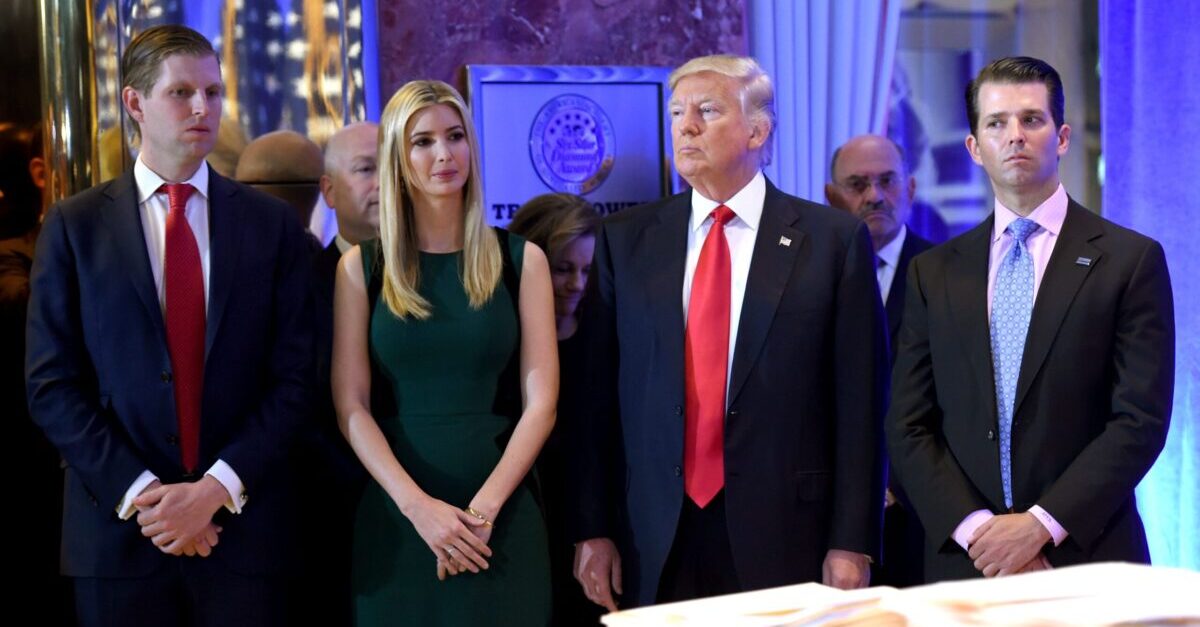
Former President Donald Trump failed in his latest bid to avoid answering questions under oath as part of an ongoing civil investigation into his namesake company’s business practices brought by New York Attorney General Letitia James (D).
“Once again, the courts have ruled that Donald Trump must comply with our lawful investigation into his financial dealings,” James said in a press release welcoming the ruling. “We will continue to follow the facts of this case and ensure that no one can evade the law.”
The underlying action is based on allegations the Trump Organization inflated the value of certain business assets in order to obtain more favorable loan terms while also fraudulently deflating the value of other assets in order to secure lower property tax rates.
Trump and his two oldest adult children, Donald Trump, Jr. and Ivanka Trump, have been resisting subpoenas to give deposition testimony since those requests were made in December 2021. The overarching lawsuit against the family business was filed in August 2020.
According to James, Eric Trump asserted his Fifth Amendment right more than 500 times during his deposition in October 2020.
In February of this year, Manhattan Supreme Court Justice Arthur Engoron declined to quash civil subpoenas and depositions for the remaining members of the Trump family, writing in an 8-page ruling that it “would have been a blatant dereliction of duty (and would have broken an oft repeated campaign promise)” for the attorney general not to investigate those fraud allegations that came via “sworn congressional testimony by former Trump associate Michael Cohen that respondents were ‘cooking the books.’”
On February 27, 2019, Cohen appeared before the House Committee on Oversight and Reform to provide testimony about alleged crimes committed by his former friend and employer. Rep. Alexandria Ocasio-Cortez (D-N.Y.) went on to elicit testimony from Cohen that Trump provided inflated assets to insurance companies and that his tax returns also likely contained similar financial improprieties.
In a 4-page ruling from the Appellate Division of the First Judicial Department of Manhattan Supreme Court on Thursday, a panel of judges upheld the lower court’s denial of the Trumps’ motion to quash.
Trump’s attorneys have argued that having to answer questions under oath in the investigation would violate their Fifth Amendment right against self-incrimination. The judges rejected that argument. Trump’s attorneys have also sought to cast James as unethical for making good on her above-referenced campaign promises to investigate the Trump family’s fortunes. That argument was also unconvincing.
“The political campaign and other public statements made by [James] about appellants do not support the claim that [James] initiated, or is using, the subpoenas in this civil investigation to obtain testimony solely for use in a criminal proceeding or in a manner that would otherwise improperly undermine appellants’ privilege against self-incrimination,” the ruling notes. “Neither does the record suggest that, in the absence of a civil investigation, [James] would be likely to grant immunity to appellants – the primary subjects of the criminal investigation – to secure their grand jury testimony. Thus, the subpoenas did not frustrate any right to testify with immunity.”
The ruling also dismisses claims that the Trump Organization was targeted as the result of “selective prosecution”:
[The Office of the Attorney General] began its investigation after public testimony of a senior corporate insider and reviewed significant volumes of evidence before issuing the subpoenas. Appellants have not identified any similarly implicated corporation that was not investigated or any executives of such a corporation who were not deposed. Therefore, appellants have failed to demonstrate that they were treated differently from any similarly situated persons…
Read the full ruling below:
[Image via TIMOTHY A. CLARY/AFP via Getty Images]